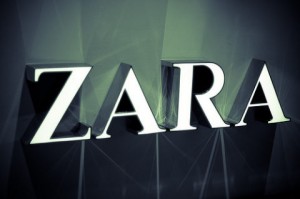Clothing retailer, ZARA is known for its fast-fashion; new styles, new designs, new colours – every week. As mentioned in Conrad Chan’s blog – this strategy is successful in that it keeps customers coming back! My question is: for how long? This is an innovative strategy, but I don’t think it is enough to capture and build long-term, profitable customer relationships.
The amount of clothing ZARA has is overwhelming and the store is often very untidy which makes it difficult to find what you’re looking for. In addition, the sales staff barely give you a minute of their time before they have to rush off to the next customer.
They offer value through variety and cheap prices. BCBG offers value through high prices and an ultimate shopping experience with exceptional service. Sacrifices have to be made in order to have a competitive advantage in a certain area. Especially, when it comes to shopping, there needs to be a balance. However, a large part of shopping is all about the experience and the service.
At the end of the day, customers want products that are going to be reliable. Especially, at the end of a bad day – they want to shop at stores where they feel welcomed and noticed – somewhere that gives them value not only with their purchase but also with their experience. Isn’t that why we all want to go shopping when we feel down?
In the short run it may be profitable but in the long run if a new competitor enters the market with low prices along with a real, personalized shopping experience – ZARA would have a difficult time maintaining their market share. Providing good service is a way to add value for the long run, and should not be sacrificed for potentially higher short run profits through low prices.


So true! Zara’s high inventory turnover is really intriguing, but not enough for their customers. Virtually every business will benefit from strong customer-associate relationships